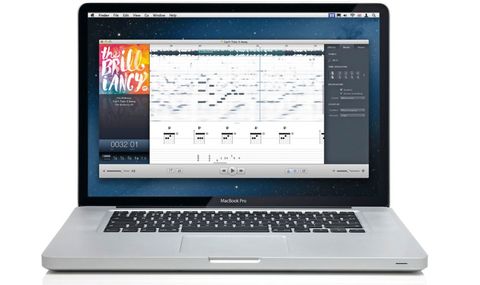Could Supermegaultragroovy's new app, Capo 3, lead the way when it comes to learning to play guitar in the future?
Okay, you can have lessons, but we suspect the way most of us learned to play was by listening to our favourite recordings over and over, trying to figure out the notes and chords and then playing along. Now, while a small proportion of readers will remember dropping the needle on vinyl records playing at half speed, things have moved on quite considerably.
"Running on a Mac, Capo 3 can import any song from your iTunes library and offer you a choice of phrase-training functions"
This is perfectly reflected in Capo 3, the latest software from Supermegaultragroovy, who claim that it is "the future of learning to play".
Running on a Mac, Capo 3 can import any song from your iTunes library and offer you a choice of phrase-training functions such as slowing down the tempo without changing pitch, transposing the pitch of a song, fixing loop points to repeat sections and vocal reduction/ elimination. What is most remarkable, though, is the claim that it can automatically detect a song's chords.
In Use
Loading a song is a case of following menus, or simply dragging and dropping the file onto Capo 3's icon. As you play back the song and listen to it, you will see its wave file, plus a spectrogram that shows what's going on musically over the full frequency range.
It's basically a series of blobs at the correct pitch, but you can pick out which blobs represent the notes in a guitar solo, and then click on them with a mouse to hear the note played back on a virtual piano. What's more, you will find that dragging the mouse over the note puts it into the tab display below - not necessarily on the right string but you can then edit that accordingly.
As for the automatic chord recognition, as a song plays, the chords appear below it. We try this with loads of different songs and the results are mixed, we have to say, depending in part on how dense the song's instrumentation is. For one, it sometimes doesn't pick up on all the chord changes, and for those it does, sometimes you get the right chord, sometimes the wrong chord.
However, Capo 3 invariably displays related chords in the right key, so is a definite starting point and a genuine help when you are figuring stuff out, as long as you have a modicum of musical knowledge. You can easily correct chords and then add new ones, so you can also use it to chart your own songs for passing on to bandmates for learning - assuming that they have a Mac and a copy of Capo, that is.
Capo 3 is undoubtedly a very useful app, although it's a personal choice whether it's worth shelling out £20.99. Its chord recognition is not perfect, but it may be asking the impossible to get it to accurately spit out every single chord from every song you put into it.
As it stands, it gives you a real head-start on figuring things out, plus its standard phrase-training facilities are excellent (the slow tempo feature sounds very clean), with helpful features for the guitarist.
Whether you're learning guitar, teaching it, or just need to work out a new repertoire quickly, Capo 3 could be an invaluable tool.

